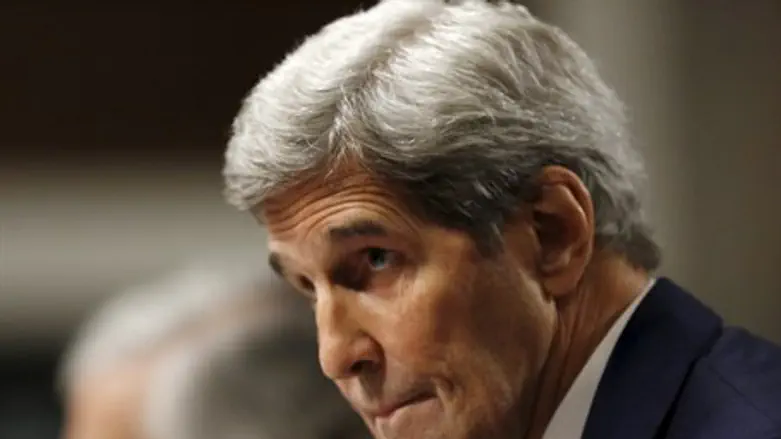
US Secretary of State John Kerry indirectly conceded that the US would defend Iran's nuclear program from Israeli sabotage on Thursday, in a hearing at the Senate Foreign Relations Committee in which he was grilled over the deal reached last Tuesday.
Senator Marco Rubio (R-FL) put Kerry on the spot when he asked him and Secretary of Energy Ernest Moniz whether the controversial articles in Annex III on page 142 of the 159-page deal would stipulate that the US block Israeli attempts to scupper the Iranian nuclear threat.
The articles in question state that the US, world powers and the EU obligate to "co-operation through training and workshops to strengthen Iran’s ability to protect against, and respond to nuclear security threats, including sabotage."
Moniz did not reject the possibility but tried to deflect the implication of betrayal of Israeli security interests, saying, “I believe that refers to things like physical security and safeguards. All of our options and those of our allies and friends will remain in place.”
Undeterred, Rubio responded, "I guess that's my point. If Israel conducts an airstrike on a physical facility, does this deal...require us to help Iran protect and respond to that threat?"
The secretary of energy hesitatingly replied by claiming that the clause would not obligate the US to respond to an Israeli airstrike.
Kerry then got involved, saying, "the purpose of that is to be able to have longer-term guarantees as we enter a world in which cyber warfare is increasingly a concern for everybody. If you are going to have a nuclear capacity, you clearly want to be able to make sure that those are adequately protected.”
Responding to Kerry's hint that the clause is meant to defend Iran from "cyber warfare," Rubio asked if the deal obligates the US to defend Iran from an Israeli cyber attack.
"I assure you that we will be coordinating very, very closely with Israel as we do on every aspect of Israel's security," said Kerry, tellingly refusing to directly answer what the deal obligates the US to do in such a scenario.
"That's not how I read this," replied Rubio.
"I don't see any way possible that we will be in conflict with Israel with respect to what we might want to do there, and I think we just have to wait until we get to that point," responded the secretary of state, essentially indicating that America's actions won't be clear until the moment of truth.
Coordination with or against Israel?
Despite the claims of "coordination" with Israel, the Israeli response to the clause shows that the Jewish state understands it to be a promise to defend Iran's nuclear program from Israel's attempts to defend itself.
"The US needs to defend Iran from an attack on its march to an Iranian (nuclear) bomb, because of the excuse that the nuclear (facilities) are for civilian purposes?," a senior Israeli diplomat at the Prime Minister's Office said Monday.
The clause is all the more significant given that a number of cyber sabotage attempts in recent years have successfully halted Iran's presumed march to the nuclear bomb - most famously the 2010 Stuxnet virus. Those cyber attacks have been popularly attributed to Israel, as well as US President Barack Obama.
Defense Minister Moshe Ya'alon in May 2012 indirectly hinted that Israel may have been behind a computer virus that followed Stuxnet and was launched against Iran, known as the "Flame" malware.
The cyber sabotage option is all the more important due to Iran's development of its physical defense systems potentially blocking an airstrike; a top Iranian general announced last week that Iran will unveil new missile defense systems in September including its own version of the Russian advanced S-300 system.
It has been warned that the advanced systems would be able to block an Israeli or American airstrike aiming to take out Iran's covert nuclear program that reportedly is aiming to build a nuclear arsenal.
